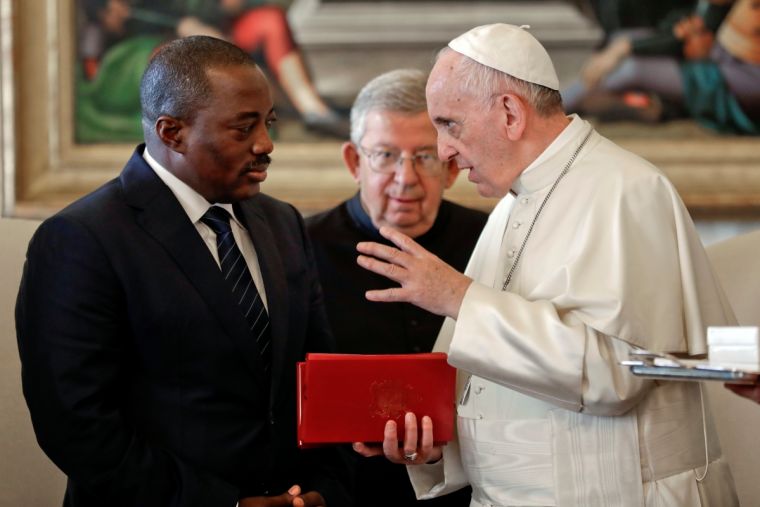Congo Cardinal likens his country to an 'open prison' following deadly crackdown on Church-backed protests
A cardinal from the Democratic Republic of Congo (DRC) has likened his country to an 'open prison' after security forces killed at least six people taking part in Church-backed protests against the president, Joseph Kabila, on Sunday.
Kabila's two-term limit expired in December 2016, but he has refused to resign and has not allowed elections to be held. On New Year's Eve, police stormed Catholic churches and fired tear gas during mass, leaving at least eight dead.
Now, the Catholic Archbishop of Kinshasa, the country's capital, Cardinal Laurent Monsengwo Pasinya has spoken out at a church in Kinshasa, saying: 'We were dispersed by tear gas, stun grenades and live bullets. We have again seen deaths, injuries, priests being arrested, and the theft of citizens' property.'

He continued: 'Christians were prevented from praying. Others were prevented from leaving by...police and military who were armed as if they had been on a battlefield...
'How can you kill men, women, children, youths and old people all chanting religious songs, carrying Bibles, rosaries and crucifixes? Are we now living in an open prison?'
The protests were organised by the Lay Coordination Committee of the DRC, which has the backing of many clerics in the country, according to the Catholic News Agency.
Arrests were also reported elsewhere around the country.
Pope Francis yesterday spoke out against the violence. 'Unfortunately, worrying news continues to arrive from the Democratic Republic of Congo,' the pope told a crowd in St Peter's Square after his regular general audience.
'I, therefore, renew my appeal that everyone make all efforts to avoid any form of violence. From its side, the Church wants nothing other than to contribute to peace and to the common good of society.'
The Catholic Church, which is highly influential in Congo, has become increasingly vocal in its condemnation of Kabila staying in power.
Some 40 per cent of the population identifies as Catholic and the Church has long filled voids in education, healthcare and other services left by an absent state.
Its bishops have frequently spoken out against human rights abuses by the government and alleged plans by Kabila to remove term limits that forbid him to run for re-election.
The US Department of State said this week that, 'We are appalled that the DRC government, including President Kabila, would employ repressive tactics and disproportionate use of lethal force against civilians – including religious leaders and children – exercising their democratic rights to call for credible and inclusive elections.'











